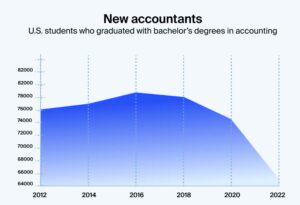Thinking about diving into the world of bookkeeping? You’re not alone. Many find it an appealing career path thanks to its mix of stability and flexibility. But how do you actually become a certified public bookkeeper? If you’re aiming to make this your profession by 2025, you’re in the right place. This guide will walk you through the steps, from understanding why certification is important to mastering the skills you’ll need and keeping an eye on future trends. Let’s get started on your journey to becoming a certified public bookkeeper.
Key Takeaways
- Certification in bookkeeping is crucial for credibility and career advancement.
- Choosing the right tools and mastering essential skills can make bookkeeping tasks easier.
- Staying updated with industry trends like AI and remote work is vital for future success.
Unlocking the Mysteries of Bookkeeping Certification
Why Certification Matters More Than Your Morning Coffee
Okay, let’s spill the beans—certification is like your morning coffee: essential. While caffeine fuels your day, a bookkeeping certification fuels your career. It’s not just about showing off a fancy title; it’s about proving you’ve got the chops. Imagine walking into a room full of numbers and being the person everyone turns to because you’ve got that shiny badge. Certification can boost your credibility, open doors to new job opportunities, and even lead to a higher paycheck.
The Secret Sauce: Choosing the Right Certification
Choosing the right bookkeeping certification is like picking the perfect recipe for success. With options like the Certified Bookkeeper (CB) from AIPB or the QuickBooks Certified User, there’s something for everyone. Think about where you want to be in five years. Are you aiming to work with small businesses, or do you see yourself managing accounts for a big corporation? Different certifications focus on different skills, so choose wisely. Here’s a quick checklist to help you decide:
- Identify Your Career Goals: What do you want to achieve?
- Research Certification Options: Look into various programs and what they offer.
- Consider Your Learning Style: Do you prefer self-paced online courses or structured classroom settings?
How to Ace the Certification Exam Without Losing Your Mind
Exams can be as daunting as facing Monday without coffee, but fear not! Preparing for a bookkeeping certification exam is all about strategy. Start by creating a study schedule that fits your lifestyle. Use practice exams to get comfortable with the format and types of questions. Remember, consistency is key. Don’t cram the night before; instead, spread out your study sessions over weeks or even months.
"Prepare like you’re training for a marathon, not a sprint. Little by little, you’ll build the stamina you need to cross the finish line with confidence."
And hey, don’t forget to reward yourself for each milestone you hit. Whether it’s a small treat or a day off, celebrate your progress!
Navigating the Bookkeeping Jungle: Skills and Tools You Need
Mastering the Art of Number Crunching
Alright, let’s face it, numbers might not be everyone’s cup of tea, but if you’re diving into bookkeeping, they’re your bread and butter. Attention to detail is your best friend here. You’ll be dealing with a lot of data, and accuracy is key. Imagine trying to find a needle in a haystack – that’s what it’s like when you’re trying to track down a missing penny in a financial report.
But it’s not just about being a human calculator. You need to be organized. Think of your financial records as a well-organized closet: everything in its place, easy to find. This way, when tax season rolls around, you’re not scrambling to find that one receipt from last February.
Tech Tools That Make Bookkeeping a Breeze
Gone are the days of ledgers and abacuses. Today, you’ve got a whole arsenal of tools to make bookkeeping as smooth as butter. QuickBooks and Xero are your go-to for managing accounts – they’re like the Swiss Army knives of accounting software. And let’s not forget about Microsoft Excel; it’s not just for making pretty graphs. It’s your trusty sidekick for financial modeling and data analysis.
If you’re just starting out or running a small business, Wave Accounting is a gem – it’s free and perfect for freelancers. And for those who love automation, Zoho Books is your new best friend. It’ll help you streamline workflows and keep everything ticking along nicely.
Why Communication Skills Are Your Secret Weapon
You might think bookkeeping is all about numbers, but don’t underestimate the power of good communication. Whether you’re explaining financial concepts to your non-accountant friends or chatting with clients, being able to translate numbers into plain English is a game changer.
Think of it like this: you’re the bridge between the numbers and the people who need to understand them. And let’s be honest, not everyone speaks fluent ‘accountant.’ So, your ability to break it down into bite-sized, understandable pieces makes you a rockstar in the bookkeeping world.
"In the world of bookkeeping, numbers tell a story, but it’s your job to make sure everyone understands the plot."
And there you have it, the skills and tools you need to navigate the wild world of bookkeeping. With a bit of practice and the right tools, you’ll be crunching numbers and keeping those financial records in tip-top shape in no time. Ready to start your journey? Check out our guide on starting an online bookkeeping business in 2025 and dive into the world of financial management. It’s a jungle out there, but with the right skills, you’ll be swinging from the treetops in no time!
From Novice to Pro: Your Bookkeeping Career Path

Starting Out: The First Steps to Bookkeeping Stardom
So, you’re ready to dive into the world of bookkeeping, huh? Well, buckle up! Your journey starts with understanding the basics. You don’t need a degree to get started, but a bit of formal education in accounting or finance can be handy. Think of it as your secret weapon—like a superhero cape, but for numbers.
- Learn the Basics: Get comfortable with accounting principles. You know, the stuff that makes your head spin at first but eventually becomes second nature.
- Choose Your Tools: Familiarize yourself with tools like QuickBooks or Xero. They’re like your trusty sidekicks.
- Get Certified: Consider becoming a Certified Bookkeeper. This credential can open doors and is like having a VIP pass to the bookkeeping world.
Climbing the Ladder: Advancing Your Bookkeeping Career
Once you’ve got your foot in the door, it’s time to think about climbing the career ladder. This isn’t just about doing your job; it’s about doing it so well that people can’t help but notice.
- Build Experience: Start by working with small businesses or as an assistant. It’s all about getting your hands dirty and learning the ropes.
- Network: Join bookkeeping communities or online forums. Sharing tips, tricks, and a virtual coffee can help you learn and grow.
- Specialize: Consider focusing on a niche, like payroll or tax bookkeeping. It can make you stand out in a crowded field.
Freelance vs. In-House: Which Path is Right for You?
Ah, the age-old question: to freelance or not to freelance? Each path has its perks and quirks.
- Freelance: Offers flexibility and the chance to work in your pajamas. But remember, you’ll need to hustle for clients and manage your own business.
- In-House: Provides stability and a steady paycheck. You get to be part of a team, which can be both comforting and challenging.
"Whether you choose to freelance or go in-house, the key is to find what works best for you. It’s like choosing between coffee or tea—both can be great, but only one will truly satisfy your daily grind."
Whichever path you decide, remember that becoming a bookkeeper is more than just crunching numbers—it’s about building a career that fits your lifestyle and goals.
The Future of Bookkeeping: Trends to Watch

AI and Automation: Friends or Foes?
So, here we are in 2025, and AI isn’t just a sci-fi fantasy anymore—it’s your new coworker. Bookkeepers are finding themselves in a love-hate relationship with automation. On one hand, you’ve got AI taking over those mundane tasks like data entry, freeing you up to focus on more strategic stuff. On the other hand, there’s that nagging fear: "Will a robot take my job?" Spoiler alert: probably not. Instead, AI is more like your trusty sidekick, helping you spot trends and anomalies in financial data faster than you can say "spreadsheet."
The Rise of Remote Bookkeeping: Work in Your Pajamas
If you thought working from home in your PJs was a temporary pandemic perk, think again. Remote bookkeeping is here to stay, and it’s reshaping the industry. With cloud-based tools and virtual collaboration platforms, you’re not tied to a desk anymore. Whether you’re sipping coffee in your kitchen or lounging in a hammock, you can manage clients’ books from anywhere. This shift means more flexibility for you and a broader client base, as geography is no longer a barrier.
Sustainability in Bookkeeping: Going Green with Numbers
In 2025, going green isn’t just about recycling; it’s about sustainable finance. Bookkeepers are playing a crucial role in helping businesses adopt eco-friendly practices. From tracking carbon footprints to managing investments in green technologies, your role is expanding into the sustainability arena. It’s not just good for the planet; it’s good for business too. Companies are increasingly looking for ways to showcase their commitment to the environment, and you’re the one making sure the numbers reflect that.
Embrace these trends, and you’ll not only stay relevant in the ever-evolving bookkeeping landscape but also help shape a more sustainable future for businesses around the globe.
Here’s a quick look at the substantial investments focusing on transforming finance practices, highlighting the shift towards more judgment-intensive processes like planning and forecasting. This trend is reshaping how we think about finance and accounting, making it an exciting time to be in bookkeeping.
Wrapping It Up: Your Bookkeeping Adventure Awaits!
So there you have it, folks! You’ve got the roadmap to becoming a certified public bookkeeper in 2025. It’s not just about crunching numbers; it’s about joining a community of financial wizards who keep the world turning. Whether you’re diving into courses, snagging certifications, or just soaking up all the knowledge you can, remember that every step you take is a step towards mastering the art of bookkeeping. And hey, if you ever feel overwhelmed, just think of it like assembling IKEA furniture—confusing at first, but oh-so-satisfying once it’s done. Now go out there and show those spreadsheets who’s boss!
Frequently Asked Questions
What are the steps to become a certified bookkeeper?
To become a certified bookkeeper, you need to choose a certification program, study the required materials, and pass the certification exam. Some programs might require you to have some work experience or education in bookkeeping.
Why is bookkeeping certification important?
Bookkeeping certification shows that you have the skills and knowledge needed to handle financial records accurately. It can help you get better job opportunities and earn more money.
Can I become a bookkeeper without a degree?
Yes, you can become a bookkeeper without a degree. Many certification programs offer courses to teach you the basics of bookkeeping, and you can learn on the job or through online courses.







